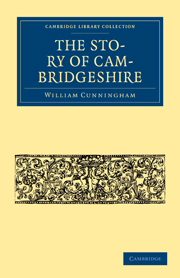IV - FAIRS AND DISTANT TRADE
Published online by Cambridge University Press: 07 September 2010
Summary
Though the English tribes did not take account of trade in their first settlements, and only gradually engaged in regular trade, it would be a mistake to suppose that the tradition of occasional trade at fairs, which were frequented by strangers from a distance, died out completely.
The great occasions of festival, with sacrifice and feasting, were opportunities for traffic which do not seem to have been neglected in heathen times in Ireland; and Gregory was anxious that some opportunities of festival should be found for the English convert at the newly-consecrated churches. He suggested that on the day of the nativity of the holy martyrs whose relics were deposited in any church the people “might build themselves huts from the boughs of trees,” and celebrate the solemnity with religious feasting. Five hundred years later we find that it was the custom of certain tenants of the Abbey of Durham to furnish booths for the feast of S. Cuthbert; and one is tempted to think of the stalls as distinguishing the trade which was carried on at fairs from the sale of produce which went on at the weekly markets to which women came with their baskets.
There is very little mention of fairs before the Norman Conquest or in Domesday Book, but we hear a great deal of them in the Norman and Angevin reigns; and it is quite possible that some of them were held at the time of the Conquest, although there is no mention of them.
- Type
- Chapter
- Information
- The Story of Cambridgeshire , pp. 30 - 42Publisher: Cambridge University PressPrint publication year: 2009First published in: 1920



